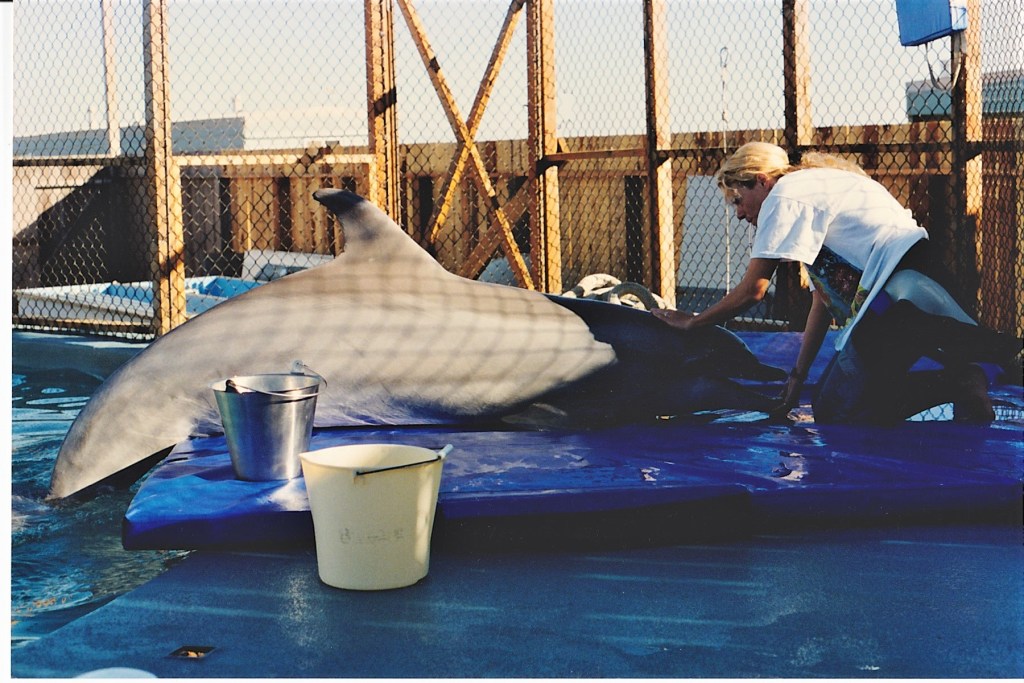WORKING WITH MARINE MAMMALS
“This class does a fantastic job of encapsulating a wide range of career fields that work with marine mammals, and gives a thorough summary of each that makes me feel more confident about which one I would want a career in.”
-Haley Booth
Available On Demand for one year for just $250
Learn and experience the entire field of working with Marine Mammals!
Course Description:
This class is open to anyone who is interested in pursuing a career in the marine mammal field and would like to understand how to get started and what options exist. The class's instructor, Dr. Jenifer Zeligs, has over 40 years of experience working with a variety of marine mammal taxa across diverse disciplines including laboratory and field research, public display, cutting edge veterinary care and training. This course has helped to prepared hundreds of students for fulfilling careers working with marine mammals and it's now available from the comfort of your own home.
The course is offered fully online with lectures available to watch on-demand in pre-recorded videos. It will provide practical information about marine mammal taxa, physiology, legal policy in the U.S., husbandry and veterinary medicine, research techniques, science education, animal training and careers in these areas. The course draws heavily on the rich background of marine mammal work in the Monterey Bay area of California, but includes worldwide examples. To supplement the lecture images, the course includes videos of marine mammals worldwide and those at Moss Landing Marine Laboratories (MLML), including a "virtual internship day" experience at the MLML long term care facility.
Check out this Course Overview with Dr. Jenifer Zeligs
Course Certificate in Working With Marine Mammals
Available upon successful completion of the optional final exam. Fees for the certification are $50 if purchased as a bundle with the class, or $60 if purchased separately.
Course Lectures Include:
1) Introduction: Introduction to the class, teacher, course structure and content. Overview of the variety of careers working with marine mammals (i.e.: research, training, education, naturalist, veterinary medicine).
2) General Marine Mammal Biology: General overview of taxonomy and natural history of marine mammal species (i.e.: pinnipeds, cetaceans, sirenia, and misc. carnivores). Includes a slide show of Marine Mammals of the Monterey Bay area.
3) Marine Mammal Science: Introduction to marine mammal legislative issues (MMPA, ESA, AWA). Overview of general research topics in marine mammal science (ex: sensory perception, basic ecology, physiology, veterinary sciences, management, cognition, evolution) and about the scientific process and graduate school.
4) Field and Laboratory Research Techniques: Overview the types of experiences and techniques of working in field research (handling animals, working in remote locations, instrumentation, and research paradigms) and with animals brought into the laboratory (managed care).
5) Marine Mammal Physiology: Description of the unique adaptations of marine mammals and how this makes them interesting and difficult research and husbandry subjects (i.e.: diving adaptations, aerobic dive limit calculations, thermoregulation, sensory abilities).
6) Veterinary Care: Medical careers working with marine mammals (rehabilitation and veterinary care); common medical exam procedures, problems, and treatments of marine mammals; stranding response issues.
7) Marine Mammal Husbandry: How to care for marine mammals in managed care using physiological references and USDA (APHIS) legal guidelines (habitat, physical needs, water quality standards and sampling, food, vitamins, veterinary care, basic husbandry care and cleaning).
8) Education and Conservation: Educating the public about marine mammals (i.e.: careers in education, standards for integrative science education, placing animal in ecosystem with accurate facts, animal welfare groups).
9) Marine Mammal Training: Overview of philosophy and applied behavior analysis for training marine mammals (i.e.: what is training, why train? and training jobs). Basic behavior analysis: how to explain to an animal what you want them to do (i.e.: bridge and target techniques) and have them want to cooperate (i.e.: motivation, desensitization, and safety).
10) Review and Discussion: A review of the class with questions posed by the professor to stimulate thought and integrate the material from throughout the class.


Completion of this course and Animal Training 101 can lead to a Certificate in Beginning Marine Mammalogy. Click the link here for more information.

